A Comprehensive Guide to Canned Tomatoes for Homemade Sauce Introduction: Canned tomatoes serve as an indispensable ingredient for countless delicious recipes, but when it comes to making homemade sauces, their significance often takes center stage. Whether you’re whipping up a classic marinara, a hearty Bolognese, or a tangy salsa, the choice of canned tomatoes can significantly impact the flavor, consistency, and overall quality of your sauce. This article aims to provide a thorough summary of the different types of canned tomatoes available for sauce-making, exploring their characteristics, pros, and cons, and offering key insights to help you make an informed choice. 1. Whole Peeled Tomatoes: – Description: Whole peeled tomatoes are unadulterated tomatoes packed in juice or puree, with the skins and seeds removed. They are typically picked at peak ripeness and preserved through canning. – Pros: – Robust Flavor: Whole peeled tomatoes offer a robust, rich tomato flavor, making them an excellent choice for sauces that require a prominent tomato taste. – Versatility: Their larger size makes them adaptable for various cooking methods, including simmering, crushing, or blending. – Flexibility: The absence of added ingredients grants you the freedom to control the texture and consistency of your sauce. – Cons: – Consistency: Achieving a smooth consistency requires additional time and effort, as the tomatoes need to be crushed or blended before incorporating them into the sauce. 2. Crushed Tomatoes: – Description: Crushed tomatoes are made from ripe tomatoes that have been crushed or pureed, resulting in a semi-pureed texture. Some varieties may contain a combination of multiple tomato types. – Pros: – Convenience: Crushed tomatoes save time in preparation, as they come partially processed, reducing the need for additional crushing or blending. – Texture: The semi-pureed texture is ideal for thicker sauces like marinara, providing a well-balanced consistency. – Flavor: Crushed tomatoes offer a good balance between fresh tomato flavor and the convenience of canned varieties. – Cons: – Limited Control: The partially pureed texture leaves less room for customizing the consistency of the sauce. – Variability: Different brands may have slight variations in texture and taste, so experimentation is essential to find your preferred brand. 3. Tomato Puree: – Description: Tomato puree is made by cooking and straining tomatoes to remove the skins and seeds. The resulting product is a smooth, thick, and concentrated tomato base. – Pros: – Texture: The smooth and thick texture of tomato puree lends itself well to sauces that require a velvety finish, such as vodka sauce or creamy tomato-based dishes. – Concentrated Flavor: The flavor of tomato puree is typically robust and intense, making it a go-to choice for sauces that require a more concentrated tomato taste. – Quick Cooking Time: Due to its already pureed nature, tomato puree reduces simmering time, making it an ideal option for quick and easy sauce preparations. – Cons: – Less Versatile: The smooth consistency of tomato puree leaves less room for customization, limiting its use in certain sauces that benefit from chunkier tomato texture. – Less Freshness: Compared to whole peeled tomatoes or crushed tomatoes, tomato puree may lack the vibrant freshness of freshly made sauce.
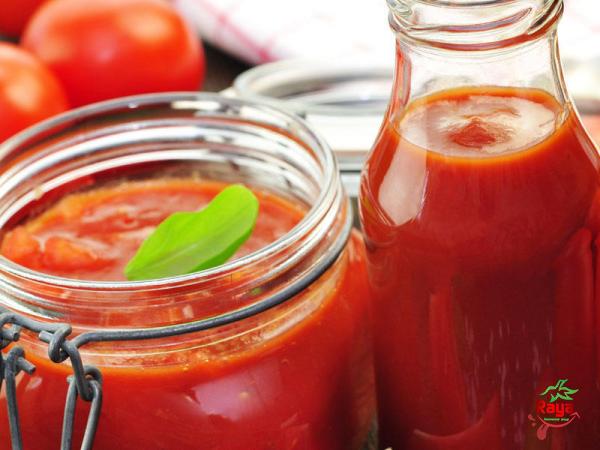
tomato paste
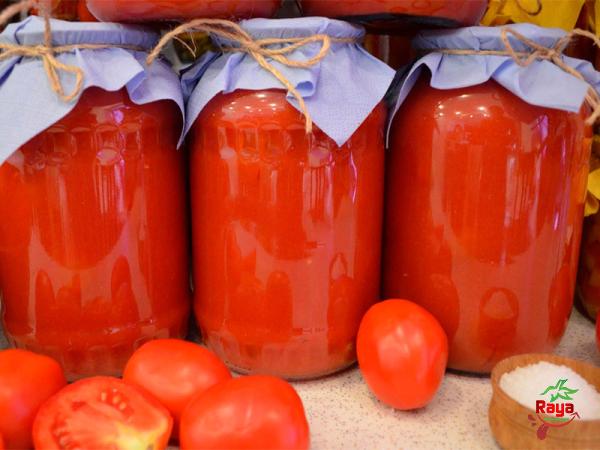 4. Tomato Sauce: – Description: Tomato sauce is a highly processed variety, made from cooked tomatoes, sugar, and various seasonings. While it can be used as a base for homemade sauces, it is frequently used as-is for quick dishes. – Pros: – Convenience: Tomato sauce eliminates the need for extensive cooking and seasoning, making it a time-saving option for those looking for a ready-to-use sauce. – Flavor Enhancements: The addition of sugar and other seasonings can lend a well-rounded, seasoned taste to dishes. – Commonly Available: Tomato sauce is widely available in supermarkets and grocery stores. – Cons: – Limited Control: The already seasoned nature of tomato sauce limits your ability to tailor the flavors to suit your preferences. – Potential Preservatives: Some commercially produced tomato sauces may contain preservatives or additives, so it’s essential to read the labels carefully. Conclusion: Canned tomatoes are an essential pantry staple for anyone who enjoys cooking homemade sauces. Whether you choose whole peeled tomatoes, crushed tomatoes, tomato puree, or tomato sauce, each variety offers its unique characteristics and benefits. The decision ultimately depends on personal preference, the desired texture, and the overall flavor profile you wish to achieve. Experimenting with different types and brands will help you find the perfect canned tomatoes for your homemade sauce, making every dish a culinary delight.Different Brands and Varieties: 1. Cento San Marzano Tomatoes: – Description: Cento San Marzano tomatoes are renowned for their exceptional quality and authentic flavor. Grown in Italy’s volcanic soil, these tomatoes have a firm texture and a balanced sweetness. – Business Benefit: Using Cento San Marzano tomatoes can elevate the flavor and reputation of your homemade sauce, attracting customers who appreciate high-quality ingredients with a premium price point. 2. Muir Glen Organic Tomatoes: – Description: Muir Glen produces a range of organic canned tomatoes known for their rich, full-bodied flavor. They offer diced tomatoes, crushed tomatoes, and fire-roasted tomatoes. – Business Benefit: By incorporating Muir Glen Organic Tomatoes into your sauce, you can tap into the growing demand for organic products, appealing to health-conscious consumers who prioritize sustainability and natural ingredients. 3. Hunt’s Whole Plum Tomatoes: – Description: Hunt’s Whole Plum Tomatoes are picked at the peak of ripeness and packed in their own juice, delivering a vibrant tomato flavor. They are a widely recognized and affordable option. – Business Benefit: Utilizing Hunt’s Whole Plum Tomatoes in your sauce can help keep production costs lower while still maintaining a quality taste. This can be beneficial for business owners looking to offer budget-friendly sauce options.
4. Tomato Sauce: – Description: Tomato sauce is a highly processed variety, made from cooked tomatoes, sugar, and various seasonings. While it can be used as a base for homemade sauces, it is frequently used as-is for quick dishes. – Pros: – Convenience: Tomato sauce eliminates the need for extensive cooking and seasoning, making it a time-saving option for those looking for a ready-to-use sauce. – Flavor Enhancements: The addition of sugar and other seasonings can lend a well-rounded, seasoned taste to dishes. – Commonly Available: Tomato sauce is widely available in supermarkets and grocery stores. – Cons: – Limited Control: The already seasoned nature of tomato sauce limits your ability to tailor the flavors to suit your preferences. – Potential Preservatives: Some commercially produced tomato sauces may contain preservatives or additives, so it’s essential to read the labels carefully. Conclusion: Canned tomatoes are an essential pantry staple for anyone who enjoys cooking homemade sauces. Whether you choose whole peeled tomatoes, crushed tomatoes, tomato puree, or tomato sauce, each variety offers its unique characteristics and benefits. The decision ultimately depends on personal preference, the desired texture, and the overall flavor profile you wish to achieve. Experimenting with different types and brands will help you find the perfect canned tomatoes for your homemade sauce, making every dish a culinary delight.Different Brands and Varieties: 1. Cento San Marzano Tomatoes: – Description: Cento San Marzano tomatoes are renowned for their exceptional quality and authentic flavor. Grown in Italy’s volcanic soil, these tomatoes have a firm texture and a balanced sweetness. – Business Benefit: Using Cento San Marzano tomatoes can elevate the flavor and reputation of your homemade sauce, attracting customers who appreciate high-quality ingredients with a premium price point. 2. Muir Glen Organic Tomatoes: – Description: Muir Glen produces a range of organic canned tomatoes known for their rich, full-bodied flavor. They offer diced tomatoes, crushed tomatoes, and fire-roasted tomatoes. – Business Benefit: By incorporating Muir Glen Organic Tomatoes into your sauce, you can tap into the growing demand for organic products, appealing to health-conscious consumers who prioritize sustainability and natural ingredients. 3. Hunt’s Whole Plum Tomatoes: – Description: Hunt’s Whole Plum Tomatoes are picked at the peak of ripeness and packed in their own juice, delivering a vibrant tomato flavor. They are a widely recognized and affordable option. – Business Benefit: Utilizing Hunt’s Whole Plum Tomatoes in your sauce can help keep production costs lower while still maintaining a quality taste. This can be beneficial for business owners looking to offer budget-friendly sauce options.
Specifications of tomato paste
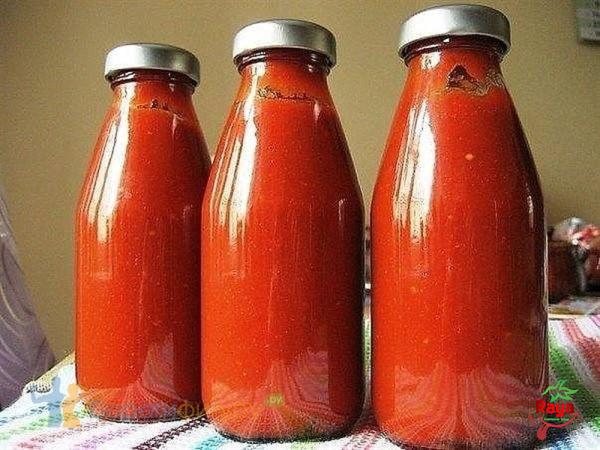 4. Pomi Tomatoes: – Description: Pomi Tomatoes are 100% Italian, GMO-free, and contain no preservatives. They are packed in a carton box rather than a can, maintaining the freshness and flavor of the tomatoes. – Business Benefit: The unique packaging of Pomi Tomatoes enhances their market appeal, providing an eco-friendly option that resonates with environmentally conscious consumers. Incorporating these tomatoes into your sauce can help distinguish your brand and attract a specific demographic. 5. La San Marzano Tomatoes: – Description: La San Marzano Tomatoes are another popular choice for those seeking authentic Italian flavor. These tomatoes are cultivated in the fertile soil near Mount Vesuvius and have a distinct sweet taste. – Business Benefit: Using La San Marzano Tomatoes in your sauce allows you to align your business with a trusted and recognized brand, enhancing your credibility and attracting customers who seek authenticity and traditional Italian cuisine. Storage and Shelf Life: Proper storage of canned tomatoes is crucial to maintain their quality and extend their shelf life. Here are some key considerations: 1. Ideal Storage Conditions: – Canned tomatoes should be stored in a cool, dry, and dark place, away from direct sunlight and excessive heat or humidity. – It is crucial to ensure that the cans are stored in a well-ventilated area to prevent moisture buildup, which can lead to rusting and spoilage. 2. Shelf Life: – Canned tomatoes generally have a long shelf life, typically ranging from 1 to 2 years. – However, it is essential to check the expiration date on the can and use the tomatoes within a reasonable timeframe for optimum flavor and quality. 3. FIFO Method: – Practicing the First-In, First-Out (FIFO) method is crucial for inventory management. This entails using the oldest cans first before opening the newer ones, ensuring that the tomatoes are used before they reach their expiration date. Labeling and Packaging: 1. Clear and Informative Labels: – Business owners should ensure that the canned tomatoes they choose have clear and informative labeling, including the brand name, product type, net weight, and nutritional facts. – Including additional details such as the tomato variety used and country of origin can help attract customers looking for specific characteristics or qualities. 2. Packaging Materials: – Consider the environmental impact of the packaging materials when selecting canned tomatoes for your sauce. Opting for brands that utilize recyclable or eco-friendly materials helps align your business with sustainability practices and appeals to eco-conscious consumers.
4. Pomi Tomatoes: – Description: Pomi Tomatoes are 100% Italian, GMO-free, and contain no preservatives. They are packed in a carton box rather than a can, maintaining the freshness and flavor of the tomatoes. – Business Benefit: The unique packaging of Pomi Tomatoes enhances their market appeal, providing an eco-friendly option that resonates with environmentally conscious consumers. Incorporating these tomatoes into your sauce can help distinguish your brand and attract a specific demographic. 5. La San Marzano Tomatoes: – Description: La San Marzano Tomatoes are another popular choice for those seeking authentic Italian flavor. These tomatoes are cultivated in the fertile soil near Mount Vesuvius and have a distinct sweet taste. – Business Benefit: Using La San Marzano Tomatoes in your sauce allows you to align your business with a trusted and recognized brand, enhancing your credibility and attracting customers who seek authenticity and traditional Italian cuisine. Storage and Shelf Life: Proper storage of canned tomatoes is crucial to maintain their quality and extend their shelf life. Here are some key considerations: 1. Ideal Storage Conditions: – Canned tomatoes should be stored in a cool, dry, and dark place, away from direct sunlight and excessive heat or humidity. – It is crucial to ensure that the cans are stored in a well-ventilated area to prevent moisture buildup, which can lead to rusting and spoilage. 2. Shelf Life: – Canned tomatoes generally have a long shelf life, typically ranging from 1 to 2 years. – However, it is essential to check the expiration date on the can and use the tomatoes within a reasonable timeframe for optimum flavor and quality. 3. FIFO Method: – Practicing the First-In, First-Out (FIFO) method is crucial for inventory management. This entails using the oldest cans first before opening the newer ones, ensuring that the tomatoes are used before they reach their expiration date. Labeling and Packaging: 1. Clear and Informative Labels: – Business owners should ensure that the canned tomatoes they choose have clear and informative labeling, including the brand name, product type, net weight, and nutritional facts. – Including additional details such as the tomato variety used and country of origin can help attract customers looking for specific characteristics or qualities. 2. Packaging Materials: – Consider the environmental impact of the packaging materials when selecting canned tomatoes for your sauce. Opting for brands that utilize recyclable or eco-friendly materials helps align your business with sustainability practices and appeals to eco-conscious consumers.
buy tomato paste
 Pricing Considerations: Pricing your sauce appropriately is key to running a successful business. Here are a few factors to consider when determining the price of sauce made with canned tomatoes: 1. Ingredient Cost: – Calculate the cost of the canned tomatoes per batch by considering the purchase price and the quantity used. This will give you a baseline for ingredient cost. 2. Production Costs: – Take into account other ingredients, labor, utilities, and packaging costs associated with making the sauce. – Factor in overhead expenses such as rent, insurance, and marketing expenses to ensure a profitable price point. 3. Competitive Analysis: – Research the market to identify the pricing range for similar sauces made with canned tomatoes. – Consider the uniqueness of your sauce, brand positioning, and target market to determine whether you can charge a premium or need to compete on price. Marketing and Branding: 1. Emphasize Quality and Flavor: – Highlighting the quality of the canned tomatoes used in your sauce can set your brand apart from competitors. – Promote the rich and authentic flavor derived from the carefully selected tomatoes, enticing customers to choose your sauce over others. 2. Highlight Unique Selling Points: – If you use specific brands or varieties of canned tomatoes that are renowned for their excellence or have a unique feature, incorporate this information into your marketing strategy. – Communicate the benefits and qualities associated with these tomatoes to differentiate your sauce from others in the market. 3. Leverage Storytelling: – Share the story of your sauce-making journey and how using canned tomatoes contributes to the overall taste and quality. – Highlight the origin and production methods of the tomatoes to create a connection with consumers who value transparency and sustainability. 4. Engage with Customers: – Leverage social media platforms and website content to engage with your target market. – Share recipes, cooking tips, and behind-the-scenes glimpses of how your sauce is made, fostering a sense of community and generating interest in your product. Conclusion: Choosing the right canned tomatoes for homemade sauce-making is a crucial aspect of delivering a high-quality product to your customers. Whether you opt for whole peeled tomatoes, crushed tomatoes, tomato puree, or tomato sauce, understanding the characteristics, benefits, and potential drawbacks of each can help you make an informed choice for your business. Consider factors such as flavor, texture, versatility, shelf life, packaging, pricing, and marketing strategies to develop a signature sauce that captures the taste buds and loyalty of your target market. With careful selection and thoughtful execution, your sauce made with canned tomatoes will become a culinary delight that elevates your business in the competitive market of homemade sauces.
Pricing Considerations: Pricing your sauce appropriately is key to running a successful business. Here are a few factors to consider when determining the price of sauce made with canned tomatoes: 1. Ingredient Cost: – Calculate the cost of the canned tomatoes per batch by considering the purchase price and the quantity used. This will give you a baseline for ingredient cost. 2. Production Costs: – Take into account other ingredients, labor, utilities, and packaging costs associated with making the sauce. – Factor in overhead expenses such as rent, insurance, and marketing expenses to ensure a profitable price point. 3. Competitive Analysis: – Research the market to identify the pricing range for similar sauces made with canned tomatoes. – Consider the uniqueness of your sauce, brand positioning, and target market to determine whether you can charge a premium or need to compete on price. Marketing and Branding: 1. Emphasize Quality and Flavor: – Highlighting the quality of the canned tomatoes used in your sauce can set your brand apart from competitors. – Promote the rich and authentic flavor derived from the carefully selected tomatoes, enticing customers to choose your sauce over others. 2. Highlight Unique Selling Points: – If you use specific brands or varieties of canned tomatoes that are renowned for their excellence or have a unique feature, incorporate this information into your marketing strategy. – Communicate the benefits and qualities associated with these tomatoes to differentiate your sauce from others in the market. 3. Leverage Storytelling: – Share the story of your sauce-making journey and how using canned tomatoes contributes to the overall taste and quality. – Highlight the origin and production methods of the tomatoes to create a connection with consumers who value transparency and sustainability. 4. Engage with Customers: – Leverage social media platforms and website content to engage with your target market. – Share recipes, cooking tips, and behind-the-scenes glimpses of how your sauce is made, fostering a sense of community and generating interest in your product. Conclusion: Choosing the right canned tomatoes for homemade sauce-making is a crucial aspect of delivering a high-quality product to your customers. Whether you opt for whole peeled tomatoes, crushed tomatoes, tomato puree, or tomato sauce, understanding the characteristics, benefits, and potential drawbacks of each can help you make an informed choice for your business. Consider factors such as flavor, texture, versatility, shelf life, packaging, pricing, and marketing strategies to develop a signature sauce that captures the taste buds and loyalty of your target market. With careful selection and thoughtful execution, your sauce made with canned tomatoes will become a culinary delight that elevates your business in the competitive market of homemade sauces.

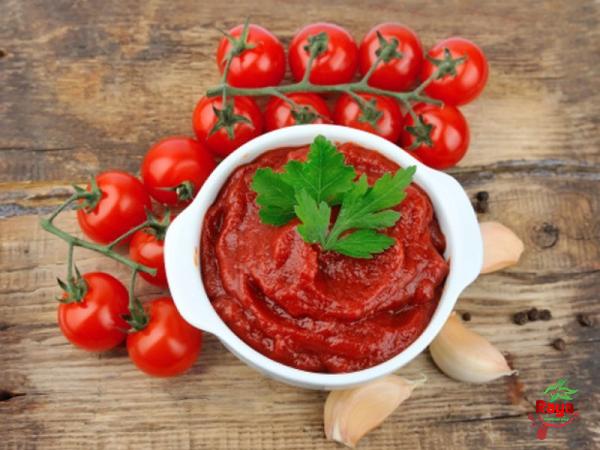
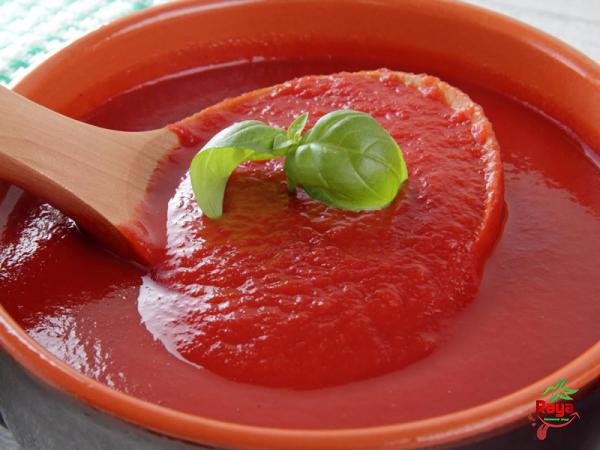
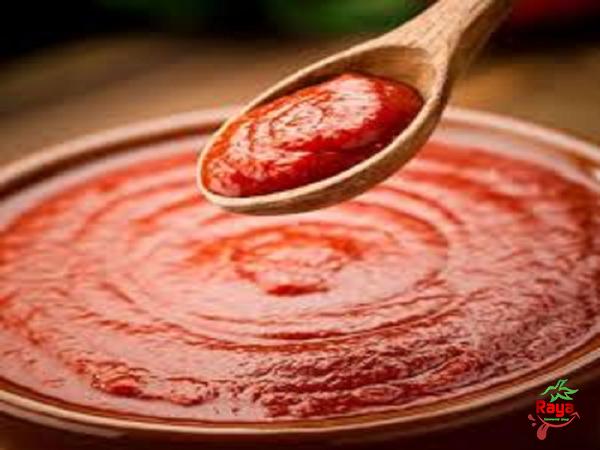

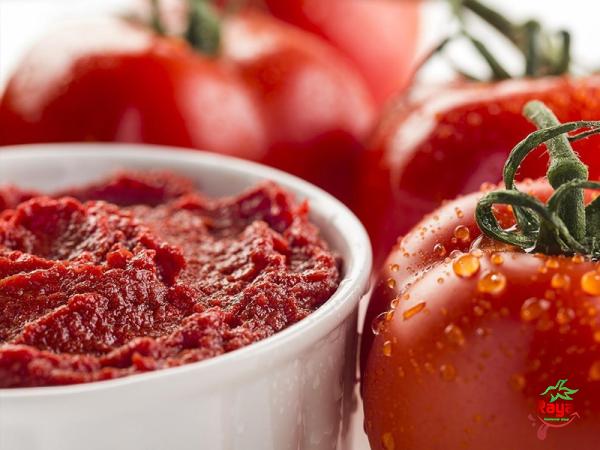


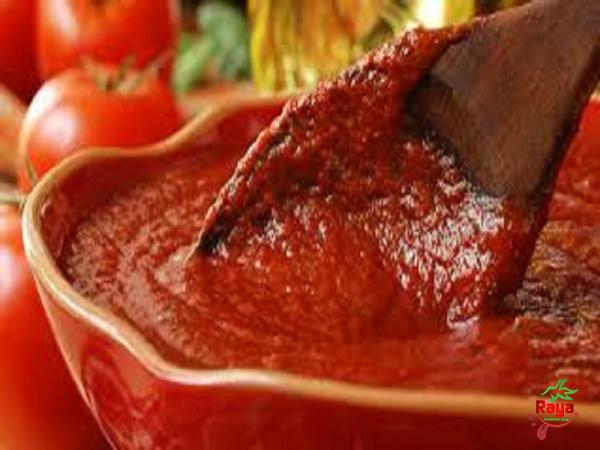
Your comment submitted.